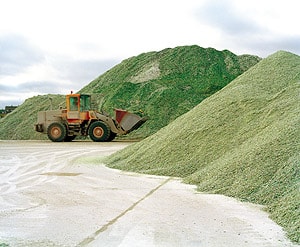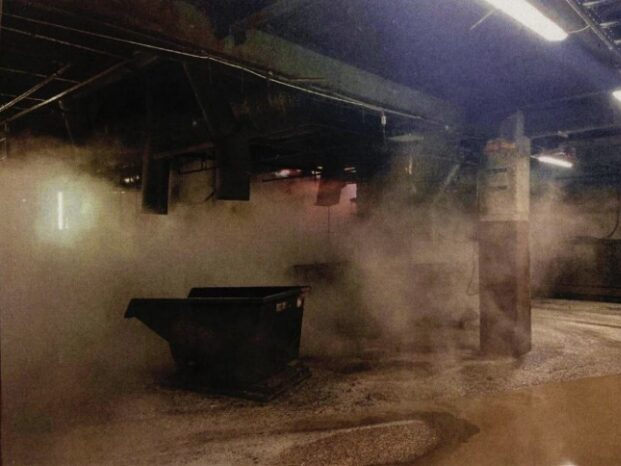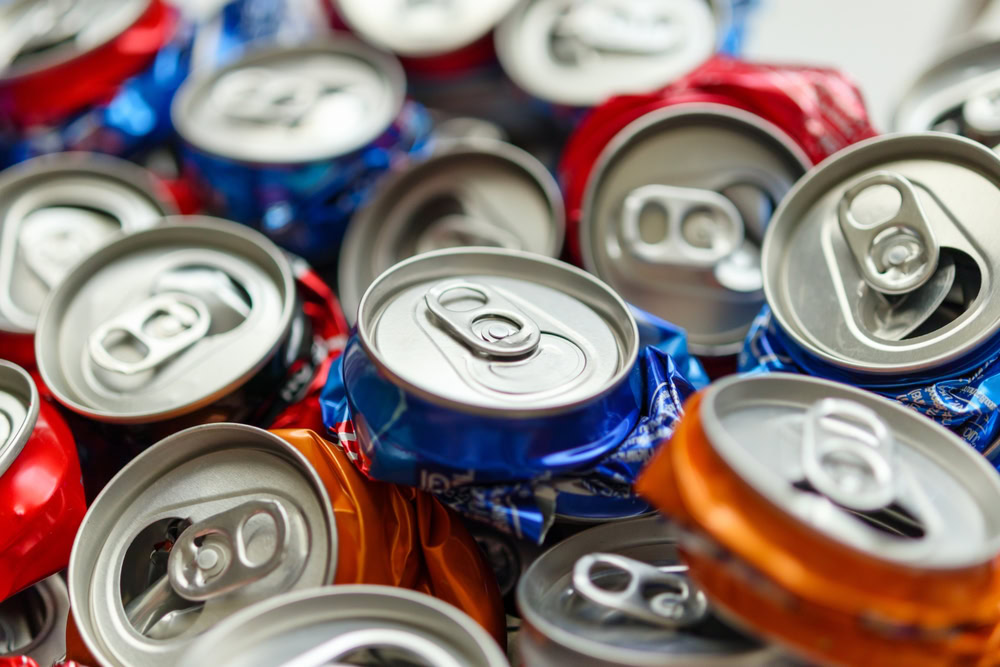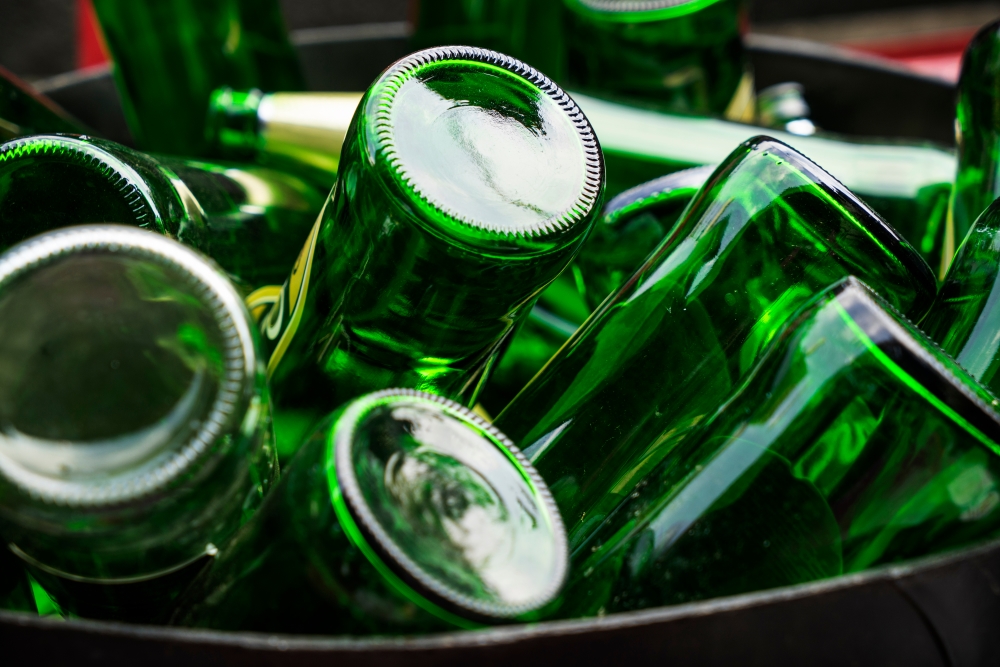Ron Cook, one of the leading lights in the launch of the very first bottle bank programme in the UK in the 1970s, said the direction of glass recycling in this country was now “tragically off-course”.
 The answer to Britain's green glass mountain could be persuading drinks firms to use green, rather than brown glass – rather than exporting green glass abroad, Mr Cook believes |
As the government moves to cut carbon emissions in the fight against climate change, Mr Cook expressed his frustration at the potential energy savings being lost by shipping waste glass abroad.
Mr Cook, who was awarded the MBE for services to the environment in 1982, told the minister: “I learned recently that in the third quarter of this year, 57,000 tonnes of waste glass (cullet) collected in the UK were exported – almost given away – instead of being recycled in Britain.
“In a year, that amounts to over 200,000 tonnes. 200,000 tonnes of cullet means two million gallons of oil that could have been saved in the UK, not to mention the raw materials ie. sand, soda ash and limestone,” he said.
Mr Cook suggested some kind of measure was needed to address the surplus of green glass arising in recycling collections because of the amount of green glass being imported with foreign wines.
He suggested there was “no need” for UK-based food and drinks makers to use brown glass.
“Brown Tax”
The former long-serving environment committee chairman of the Glass Manufacturers Federation, and employee of United Glass, appealed to Mr Bradshaw to persuade food and drinks firms of the environmental benefits of using green glass in the UK.
He said: “If the senior management of large corporations cannot see the logic of such an obviously sensible and painless strategy to achieve substantial environmental benefits, what hope for the fight against global warming and dwindling natural resources? Their customers would surely applaud such a 'green transformation'.”
– Ron Cook MBE
Now retired and living in Kingston-upon-Thames, Mr Cook said if a voluntary approach failed, some kind of “Brown Tax” could encourage food and drinks firms to switch from using brown bottles and jars to use green glass.
In his letter, Mr Cook said: “I can think of no product sold in a brown bottle that isn’t also in a clear or green bottle. If the whisky and beer brands now using brown switched to green, would the customers complain – especially if they understood the reason? The result would be more green glass production in the UK and thus more capacity to recycle the mixed glass being collected.
“Go one step further and persuade bottlers using clear glass to change to green. It would make a tremendous difference if all Scotch whisky exporters used green bottles thereby off-setting our importation of wine bottles. I can think of one famous gin that is sold in green bottles in the UK, but exported in clear bottles,” he added.
Targets
Mr Cook said the way in which government recycling targets have been set encourage local authorities to collect glass colours mixed, particularly with all the kerbside collections being introduced.
He said the best use for mixed glass would be in making green glass, since mixed glass cannot be used to make brown glass because of the chemistry of the glass colour agents.
“Each tonne of glass recycled saves 10 gallons-of-oil-equivalent. (According to an authoritative analysis commissioned by the Government in 1981.) Re-melting cullet requires 20% less energy in the furnace with a consequent reduction in CO2 emissions,” he added.








Subscribe for free